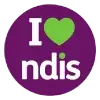Wafi Care Code of Conduct Agreement Staff / Volunteer Agreement
1. THE CODE OF CONDUCT POLICY
The Code of Conduct Policy requires the Wafi Care personnel to commit to:
- Act with integrity.Act honestly always.
- Be transparent when making decisions or giving advice.
- Ensure all actions can withstand scrutiny.
- Respect and courtesy
- respect the individual’s rights to freedom of expression, self-determination, and decision-making in accordance with laws and conventions.
- When dealing with one another, management, participants and service users, external stakeholders and other agency representatives, staff members will be respectful, honest and courteous.
- Staff members will give accurate information and prompt attention and observe fairness and equity in their dealings with others.
- Act fairly and equitably.
- Respect others, their values and their rights.
- Respect privacy and confidentiality.
- Create a safe work environment that is free of abuse, violence, discrimination, harassment or victimisation.
1.1 NDIS Code of Conduct
- act with respect for individual rights to freedom of expression, self-determination and decision-making in accordance with applicable laws and conventions.
- respect the privacy of people with disability
- provide supports and services in a safe and competent manner, with care and skill
- act with integrity, honesty and transparency
- promptly take steps to raise and act on concerns about matters that may impact the quality and safety of supports and services provided to people with disability
- take all reasonable steps to prevent and respond to all forms of violence against, and exploitation, neglect and abuse of, people with disability
- take all reasonable steps to prevent and respond to sexual misconduct
2. WORKING WITH PARTICIPANTS
When interacting or working with people using our services, staff will:
- Always treat service users with respect, and be mindful of their rights to privacy and confidentiality
- Always show respect for people’s cultural or religious sensitivities or requirements, and ensure the responsiveness of the service to their needs and circumstances
- Uphold the rights of people with disability, including their rights as consumers
- Facilitate informed decision by participants in a person-centred approach which supports and reflects their preferences and expectations
- Ensure that service users are provided with, and understand, all information relevant to their situation, options available to them and conditions of use for the service
- Ensure they have access to independent advocacy or support if they require in making any decisions
- Be aware of personal boundaries and never enter a sexual relationship with a service user
- Treat all people in a manner that demonstrates respect and ensures their environment is safe, taking all reasonable steps to prevent any activities that will impact on the quality and safety of the services provided.
- Report to supervisor any potential or real risks of harm to the person with a disability.
- Not accept money or other gifts
3. STANDARDS IN THE WORKPLACE
All staff members are required to:
- Attend work in the times agreed, notify delegate officer of their absences, report and account for all leave taken, record attendance and obtain approval before changing their work times
- Comply with the requirements of their duty statements and agreed work plans, paying appropriate attention to quality and detail in their work
- Provide accurate and honest information to delegated officer about work completed and challenges experienced in completing work
- Follow instructions that are reasonable and lawful and within their capability and training
- Report any suspected corrupt or fraudulent practices of others. Any staff member making a report will be protected from reprisal
- Observe the requirements for conditions of employment and safety as described in our Workplace Health and Safety Policy
- Perform their duties unaffected by alcohol or the use of drugs other than those prescribed for them by a medical practitioner
- Maintain a harmonious, co-operative and productive workplace, respectful of diversity
- Ensure they do not use their position to exert inappropriate influence over others
4. STANDARDS OF WORK
All individuals will perform their duties as well as they can and at the highest level of professional conduct. They will be accountable for their work and their interactions with others.
- Accountability:
- Work within the goals and objectives of the organisation
- Follow the rules, policies and procedures of the organisation
- Act within the law
- Undertake all duties in a diligent manner
- Not act in a way that brings them or the organisation into disrepute
- Personal behaviours:
- Work cooperatively as a member of the team
- Support colleagues and treat everyone with respect and courtesy
- Discuss ethical concerns with colleagues and managers
- Project a positive image of the organisation
- Not be absent from duties without an appropriate reason
- Maintain confidentiality
4.1 Confidentiality and Privacy
All staff and management must respect and keep confidential internal matters of the organisation and respect the privacy of others.
4.2 Harassment and Bullying
Harassment and bullying are unacceptable and contrary to ethical behaviour. Additionally, harassment based on a person’s sex, race, ethnic religious background, age, pregnancy, marital status, disability, transgender (transsexual) status or sexuality breaches anti-discrimination and human rights law.
Harassment in the workplace can take many forms. It can be obvious or subtle, direct or indirect. It includes:
- Sexual or suggestive remarks or gestures
- Displaying or circulating sexually suggestive, offensive or degrading/insulting material (e.g. on walls, computer screen savers, email)
- Making fun of someone, spreading rumours, and unwelcome practical jokes
- Obscene or unsolicited telephone calls, letters, faxes or email messages
- Invasion of personal space, unnecessary physical contact
- Continually ignoring or dismissing someone’s contribution
- Pushing, shoving or jostling or assault
- Threats, insults, name calling, inappropriate language
- Creating a hostile feeling or environment, even when there are no direct attacks being made on a person
Complaints concerning harassment or bullying should be actioned according to the Compliments, Complaints/ Feedback Policy.
4.3 Reporting Unethical Behaviou
If a person believes that the behaviour of any staff member, or management is unethical they must report it to delegated officer.
Unethical behaviour is defined as:
- Workplace behaviour that is contrary to our codes of ethics or conduct, and other workplace policies
- Workplace behaviour that violates any law, or is corrupt conduct or misconduct
- Mismanagement of resources or fraudulent behaviour
- Behaviour that creates a danger to public health or safety or the environment
5. TEAMWORK
Staff members will:
- Work together towards agreed work objectives and goals and communicate regularly with one another about progress.
- Work together to look for ways to improve work methods and to solve workplace and service related problems
- Give support and guidance to each other, ensure appropriate training and development and recognise each other’s results and achievements



